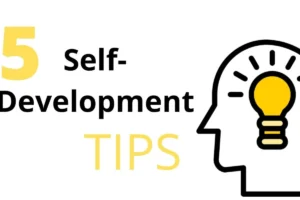1. Navigating Generational Perspectives
Let’s embark on a journey through time and explore the shifting perspectives between Boomers and Gen Z.
What were once taken for granted by Boomers may not hold the same significance for the upcoming Gen Z.
Join us as we delve into the evolving landscape of values and priorities.
2. Job Stability: A Shifting Paradigm
In the Boomer era, job stability was a cornerstone.
However, Gen Z values flexibility, entrepreneurship, and diverse experiences over the traditional notion of a lifelong career.
Let’s explore how the concept of work has evolved.
3. Technology: From Convenience to Necessity
Boomers witnessed the advent of technology, but Gen Z was born into it.
What Boomers might take for granted as a convenient tool, Gen Z sees as an integral part of daily life.
We’ll dive into the tech-driven perspectives of these generations.
4. Environmental Awareness: A Call to Action
While Boomers enjoyed a time of industrial growth, Gen Z faces the consequences.
Environmental awareness has shifted from a passive concern to an active call for sustainable living.
Let’s explore how attitudes towards the environment have transformed.
5. Social Activism: Beyond Silence
Boomers lived through historic social movements, but Gen Z takes activism to new heights.
Silent acceptance is no longer an option, and we’ll discuss how the younger generation is reshaping conversations around equality, diversity, and inclusion.
6. Information Accessibility: The Power of the Internet
The Boomer era saw limited access to information.
Gen Z, on the other hand, navigates a sea of knowledge on the internet.
We’ll explore how this shift impacts perspectives on education, fact-checking, and forming opinions.
7. Financial Literacy: Empowerment Through Knowledge
Boomers often had a more straightforward approach to finances.
Gen Z, however, faces a complex financial landscape.
We’ll discuss how financial literacy has become a crucial skill for the younger generation.
8. Homeownership: The Millennial Challenge
Boomers found stability in homeownership, but rising costs and shifting priorities have made it a different story for Gen Z and Millennials.
Let’s explore the changing dynamics of the housing market and the value placed on homeownership.
9. Global Connectivity: A Smaller World
Boomers experienced a world becoming more interconnected, but Gen Z lives in a truly global society.
We’ll discuss how this connectivity influences perspectives on culture, relationships, and opportunities.
10. Mental Health Awareness: Breaking the Stigma
Boomers often approached mental health with silence.
Gen Z, however, is breaking the stigma and embracing open conversations.
We’ll explore the changing attitudes towards mental health and the importance of well-being.
11. Education: Beyond Traditional Boundaries
The traditional education model has evolved for Gen Z.
We’ll discuss how online learning, skill development, and unconventional paths are reshaping the landscape of education.
12. Work-Life Balance: A Redefined Concept
While Boomers prioritized hard work, Gen Z emphasizes a balanced lifestyle.
We’ll explore the changing perceptions of success and the importance of personal well-being.
13. Diversity in Media: A Representation Revolution
Boomers grew up with limited diversity in media.
Gen Z demands representation, and we’ll explore how this shift impacts entertainment, advertising, and societal norms.
14. Social Media: The Power of Connection
Boomers witnessed the birth of social media, but Gen Z has mastered it.
We’ll delve into how platforms like Instagram, TikTok, and Twitter shape relationships, self-expression, and activism.
Conclusion:
Bridging the Generational Gap
In conclusion, the generational gap between Boomers and Gen Z reflects a fascinating journey of societal evolution.
As we navigate these changes, understanding and appreciating diverse perspectives become essential.
FAQs: Bridging the Generational Gap
Q1: Can Boomers and Gen Z find common ground in their perspectives?
A1: Yes, common ground exists when both generations engage in open conversations, respecting each other’s experiences and values.
Q2: How can workplaces adapt to accommodate the preferences of Gen Z?
A2: Workplace flexibility, a focus on well-being, and embracing technology are key factors that can help accommodate Gen Z’s preferences.
Q3: Are there benefits to adopting some traditional Boomer values in today’s society?
A3: Absolutely. While values evolve, some traditional principles, such as strong work ethics and financial responsibility, hold timeless value.
Q4: How can Boomers and Gen Z collaborate to create a more inclusive society?
A4: Collaborative efforts that leverage the strengths of both generations can contribute to a more inclusive and harmonious society.
Q5: What steps can individuals take to bridge the generational gap in their families?
A5: Initiating open and respectful conversations, embracing diversity in perspectives, and finding shared interests can help bridge generational gaps within families.



